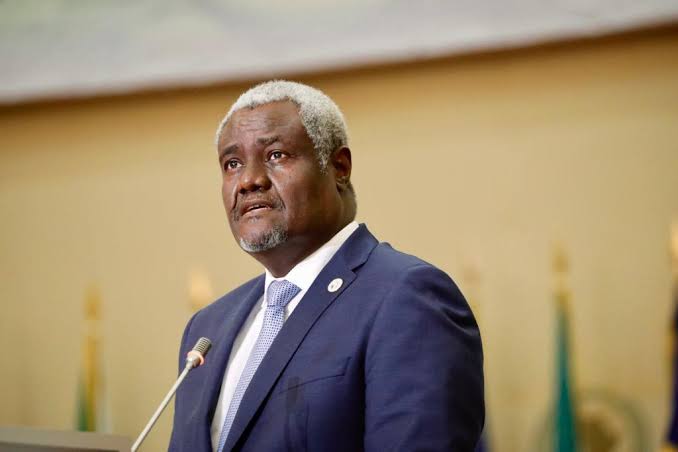The African Union Commission chairperson, Moussa Faki Mahamat, alongside the Southern African Development Community (SADC), has issued a strong call for the unconditional removal of all sanctions imposed on Zimbabwe. This appeal was made on Friday, coinciding with the commemoration of SADC’s Anti-Sanctions Day, which is observed annually on October 25 to highlight the negative impact of these sanctions on the country.
In a detailed statement, Mahamat expressed deep concern regarding the ongoing sanctions and their detrimental impact on Zimbabwe’s socio-economic development and recovery efforts. “The Chairperson remains troubled by how these sanctions hinder the country’s progress,” his office noted, underscoring the significant challenges faced by the nation.
Echoing these sentiments, Emmerson Mnangagwa, Zimbabwe’s President and the current chairperson of SADC, emphasized the need for solidarity in the region. “In solidarity, the SADC community stands with Zimbabwe in calling for the immediate and unconditional lifting of these unjust sanctions, which contravene the principles of international law and the United Nations Charter,” he stated. Mnangagwa also highlighted that the sanctions obstruct efforts toward regional integration and sustainable development, critical for Zimbabwe’s long-term growth.
Marking Anti-Sanctions Day in Zimbabwe
In Zimbabwe, citizens gathered to observe Anti-Sanctions Day under the banner of the Broad Alliance against Sanctions. A small group of protesters assembled outside the US Embassy, demanding an end to the sanctions imposed by the United States. “The sanctions must go. Every ordinary Zimbabwean is suffering because of them,” said protester Edwin Mbewe, capturing the frustration felt by many citizens.
In response to these claims, the US Embassy countered assertions that sanctions are responsible for Zimbabwe’s economic difficulties, attributing the country’s ongoing crisis to internal corruption. “The belief that US sanctions are the cause of Zimbabwe’s challenges does not align with reality. This narrative distracts from the real issues facing the nation. According to reports from Zimbabwe’s Prosecutor General, the country loses approximately $1.8 billion to corruption annually,” stated US Ambassador to Zimbabwe, Pamela Tremont, emphasizing the need to address the root causes of economic instability.
Addressing Economic Mismanagement
The US Embassy further clarified its stance on social media, asserting, “There are no sanctions on the 16 million people in Zimbabwe. We urge the government to confront economic mismanagement and the corrupt actors at the heart of Zimbabwe’s economic troubles.” Ambassador Tremont reiterated that the primary cause of the nation’s economic challenges is mismanagement, with corruption estimated to cost the country around $2 billion each year.
As calls for the lifting of sanctions grow, the situation in Zimbabwe remains a focal point for both regional and international discussions regarding economic recovery, governance, and the pressing need for reform to address long-standing issues affecting the nation’s prosperity.

